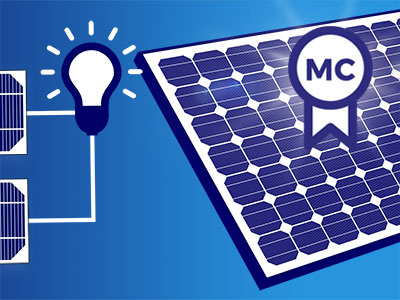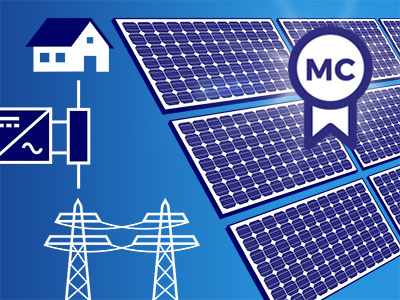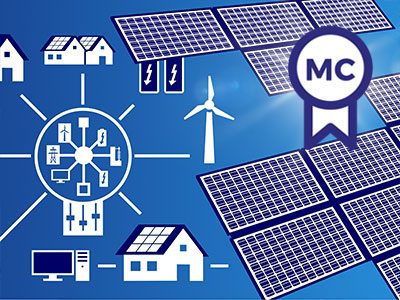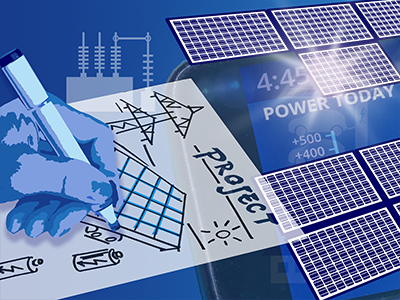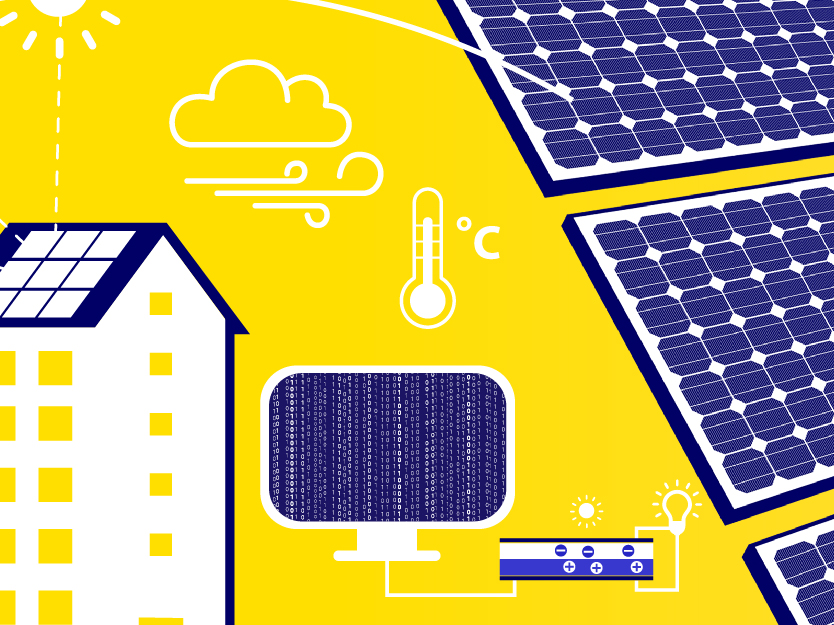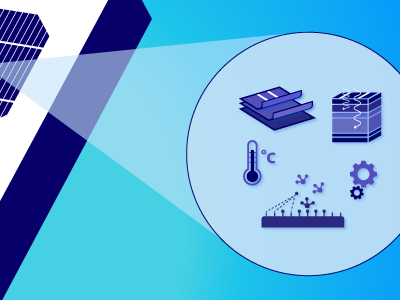Overview
Learn how solar cells generate electricity, and about the semiconductor physics and optics required to design and manufacture solar cells.
The key factor in getting more efficient and cheaper solar energy panels is the advance in the development of photovoltaic cells. In this course you will learn how photovoltaic cells convert solar energy into useable electricity. You will also discover how to tackle potential loss mechanisms in solar cells. By understanding the semiconductor physics and optics involved, you will develop in-depth knowledge of how a photovoltaic cell works under different conditions. You will learn how to model all aspects of a working solar cell. For engineers and scientists working in the photovoltaic industry, this course is an absolute must to understand the opportunities for solar cell innovation.
This course is part of the Solar Energy Engineering MicroMasters Program designed to cover all physics and engineering aspects of photovoltaics: photovoltaic energy conversion, technologies and systems.
We recommend that you complete this course prior to taking the other courses in this MicroMasters program.
What you'll learn:
- The semiconductor physics necessary to understand solar cell performance and engineering
- The optics and light management tools necessary for optimal solar cell design
- To model all aspects of a working solar cell, understanding the efficiency limits and design rules
- The principles behind the potential loss mechanisms in photovoltaic devices
Quote on this course
"I was able to familiarize myself with the latest theoretical knowledge on solar energy. This helped me to develop as an engineer and improve my skills." Previous student
Earn a Microcredential
After finishing this course, and passing the related exam, you are eligible to receive one microcredential. A microcredential is a digital certificate that allows learners to demonstrate the knowledge and skills acquired after successfully completing a small unit of education. It describes the learning outcomes, educational level and scope of the course or program – and adds a quality mark, as it is bound to a recognized quality framework. This certification is awarded to participants who enroll and complete the course starting on February 22, 2024 or later. For more information, please read the FAQ.
Details
Course Syllabus:
Week 1: Introduction
How do solar cells convert solar energy into electrical energy? What are the basic building blocks of a solar cell?
Week 2: Semiconductor Basics
What are semiconductors? What is a band diagram?
Week 3: Generation and Recombination
What are the physics of charge carriers?
EXAM
Week 4: The P-N Junction
What is a diode? How does a diode change when we apply a voltage? What about when we illuminate it with solar energy?
Week 5: Advanced Concepts in Semiconductors
What happens when we connect a semiconductor to a metal? What other types of junctions of semiconductor materials are important for solar cells?
Week 6: Light management 1: Refraction/Dispersion/Refraction
Which optical phenomena are important for solar cells? How can we use them to make sure maximal light is absorbed.
EXAM
Week 7: Light management 2: Light Scattering
Which techniques can we use to scatter light in our solar cell to enhance optical path length?
Week 8: Electrical Losses
Pull all the concepts together to understand how to engineer solar cells.
EXAM
License
Unless otherwise specified, the Course Materials of this course are Copyright Delft University of Technology and are licensed under a Creative Commons Attribution-NonCommercial-ShareAlike 4.0 International License.
FAQ
Q: What is a Microcredential
A Microcredential (hereafter: "MC") is a digital certificate that allows learners to demonstrate the knowledge and skills acquired after successfully completing a small unit of education. It describes the learning outcomes, educational level and scope of the course or program – and adds a quality mark, as it is bound to a recognized quality framework.
You will receive your MC as a digital certificate (called "Edubadge"), offered by the Dutch institution SURF. The certificates are publicly available (via an URL), can be easily shared, and can be instantly verified by other educational institutions or employers.
MCs are only used for courses or programs that comply with the Dutch national quality framework for microcredentials. MCs were recently launched in The Netherlands, with the aim to be recognized as accreditation-worthy education, specifically for continuing education programs. MCs do not have an expiration date and are managed online by the learners themselves (through the Edubadge platform of Surf).
Even if you do not live in The Netherlands, you will benefit from this MC since it will give an additional quality mark to the certificates issued by edx.org.
Note that the MCs do not replace the certificates issued by edX, and can be obtained in addition. Moreover, there is no MC for the full Micromasters program, only per course (for the full program you will still receive the certificate issued by edX.)
Q: How to obtain the MC?
A learner qualifies for a MC per course after successfully completing a course and the exam associated with this course (for example, after completing PV1 course and PV1 exam you are eligible for one MC).
To obtain your Microcredential you will need to create an EduID and connect to the Edubadges platform. After that you can access your “Edubadges backpack” in which you can store and manage your Microcredentials. For more information please visit this page: https://wiki.surfnet.nl/display/Edubadges/Aanmaken+backpack#English
More information about obtaining the MCs will be given during the course.
Q: What do MC mean for my personal data?
Please note TU Delft uses personal data in issuing Microcredentials. Learners need to create a “backpack” on Edubadges.nl which is managed by SURF to be able to claim and manage their Microcredentials. To learn more about how TU Delft uses your personal data in relation to Microcredentials read the privacy statement that can be found in the course platform.
Qualifications
Chartered Engineering Competences
All our online courses and programs have been matched to the competences determined by KIVI’s Competence Structure, a common frame of reference for everyone, across all disciplines, levels and roles.
These competences apply to this course:
- A1: Extend your theoretical knowledge of new and advancing technologies.
- B2: Conduct appropriate research, and undertake design and development of new and creative engineering solutions.
- E3: Undertake engineering activities in a way that contributes to sustainable development and a circular economy.
Admission
This is a MicroMaster Course that runs on edX.
Prerequisites
- Bachelor's degree in Science or Engineering or the successful completion of TU Delft's MOOC Solar Energy.
